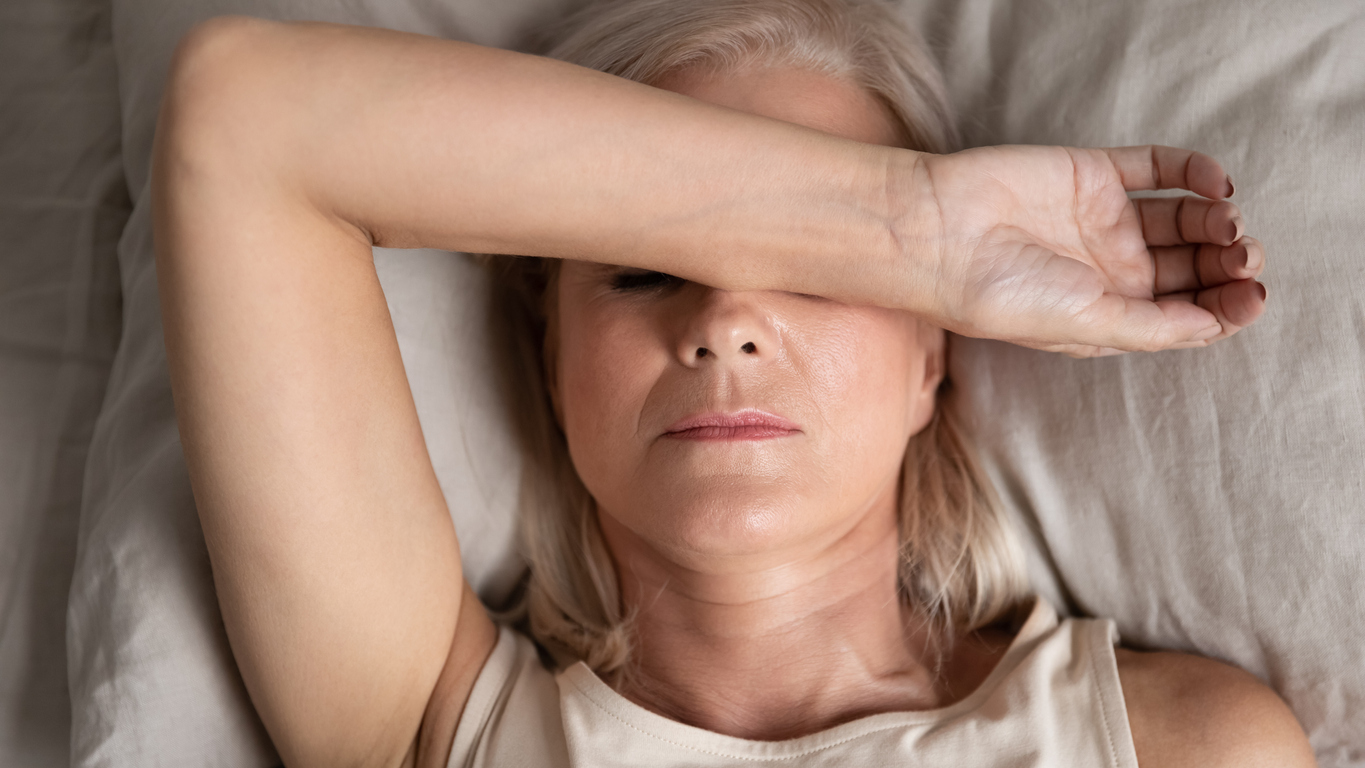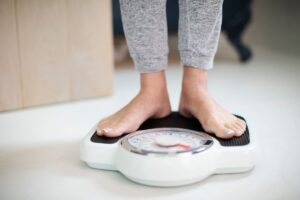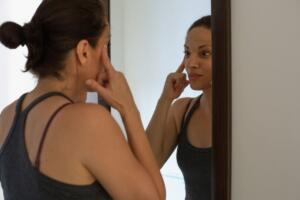If you are one of those people who fall asleep the minute your head hits the pillow, way to go! Getting quality zzz’s can be an incredibly challenging thing for some people, and it feels like an uphill battle. No matter where you fall on the scale of ease of falling asleep, there is one area where the playing field is leveled: how much sleep you need.
Do different ages require different amounts of sleep? Your answer may seem like an obvious “yes” when you think about a newborn baby and how they need much more rest than a busy career woman. However, what may not be as obvious as whether the number changes between the ages of 40 and 50, 50 and 60, and 60 and above. Read on to learn about how much sleep we need at different ages.
How Much Sleep You Need at Age 40
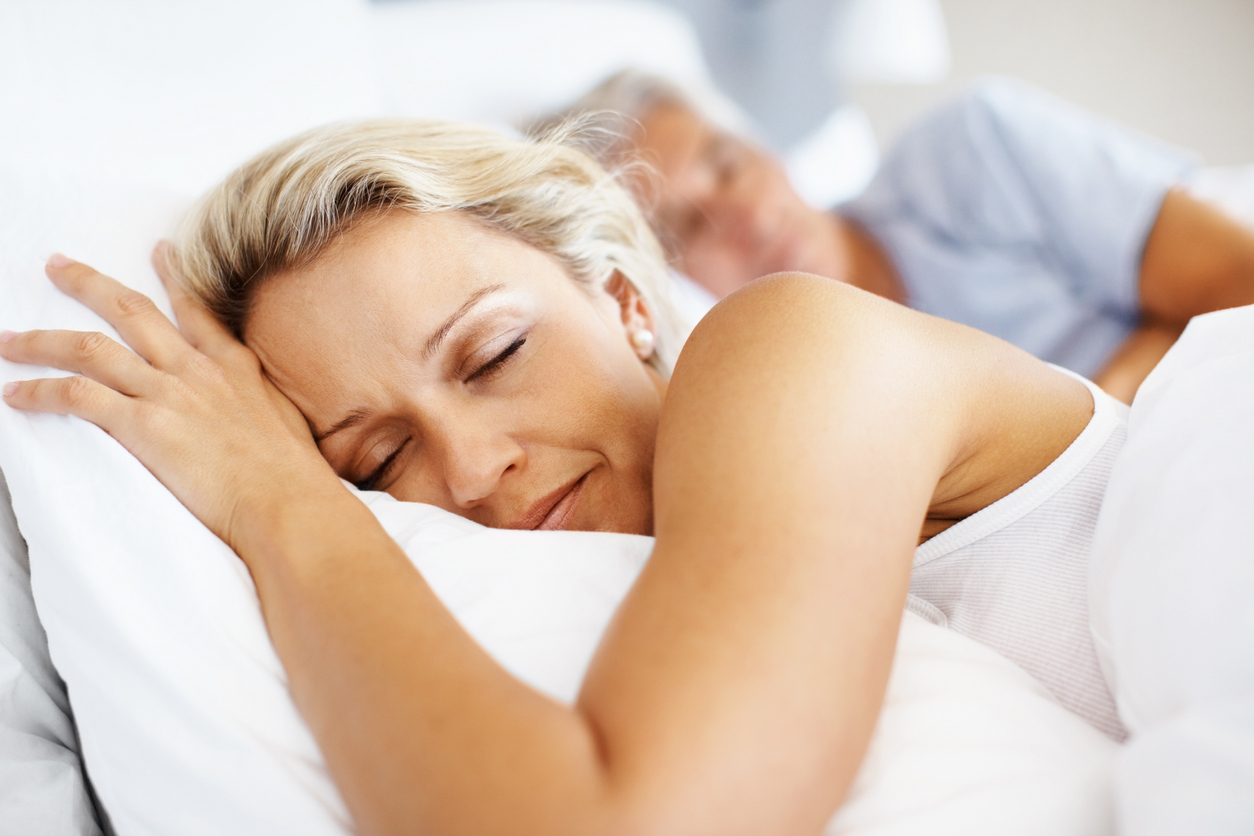
At this point in your life, your sleeping habits have been very well established. Chances are good that you’ve got your evening and next-morning routine down to a T. Because you’ve got everything organized and your kids may be old enough to allow you a full night’s rest, sleep in your 40s is probably pretty good. You may wake up once or twice for the occasional bathroom break or simply because something woke you up. Otherwise, you are sleeping almost like a baby.
Between the ages of 40 and 50, it is recommended you get between 7-9 hours of sleep per night. Because 9 hours sounds like a dream that isn’t achievable, we would say that 7 or 8 hours is a more realistic goal.
The Amount Of Sleep You Need at Age 50
As you move closer into the next decade, you may find your sleep suffering a bit more. This is the age that most women find themselves beginning menopause. According to the Mayo Clinic, the average age of menopause for women in the US is 51. And your sleep will inevitably suffer. Hot flashes are associated with menopause, and it seems that a lot of those flashes come at night when you are trying to sleep.
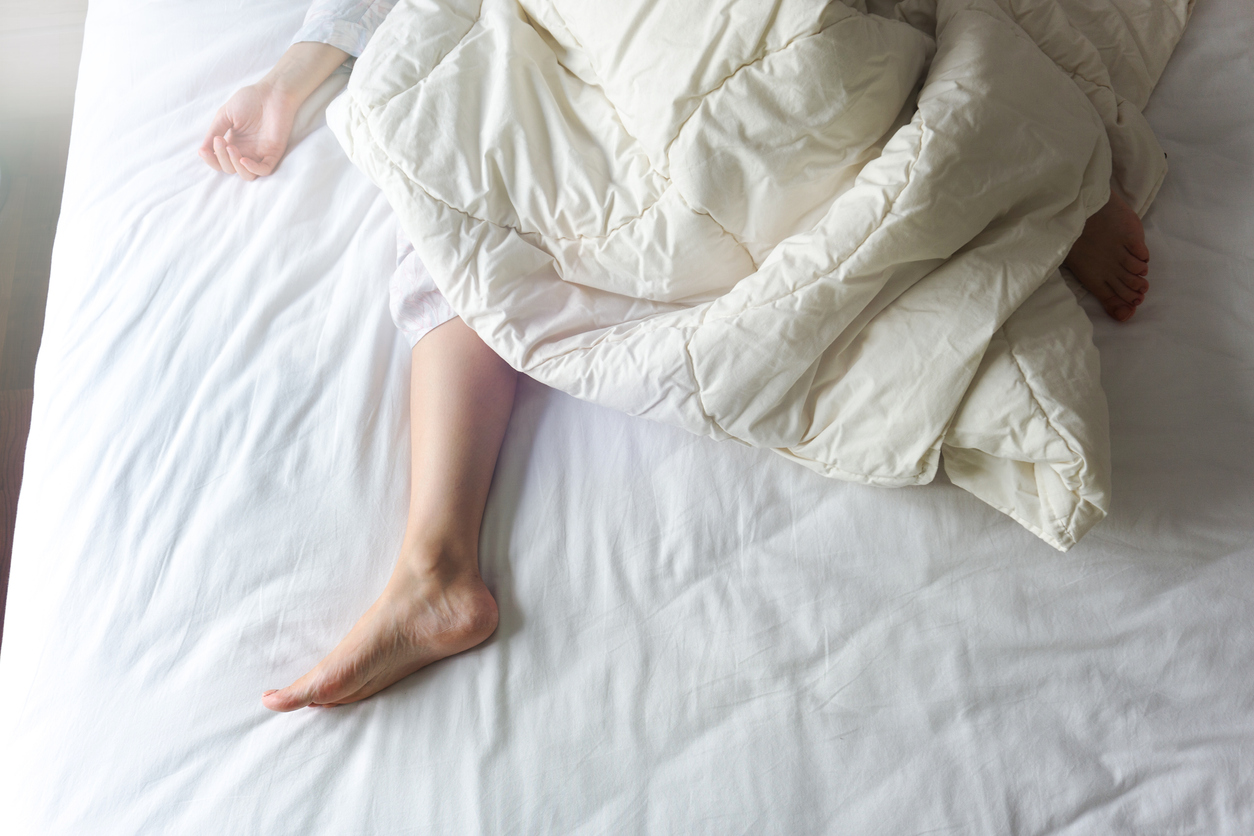
In addition to that, as stated by Johns Hopkins, “women can also develop sleep disorders such as sleep apnea, which may come from a loss of reproductive hormones like estrogen and progesterone.” Postmenopausal women have a 2-3 times more likely chance of having sleep apnea due to the drop in the hormones that previously protected us from this sleep problem.
Between the ages of 50 and 65, it is recommended you get between 7-9 hours of sleep per night. Knowing that you are going to wake up at least once in the night (if you’re lucky, it will be just once), we suggest laying down for bed early and at least allowing yourself to relax.
How Much Sleep You Need at Age 65 and Above
As mentioned before, sleep apnea becomes a common problem after menopause and causes people over the age of 60 to struggle significantly with their rest. While some people think that older people don’t need as much sleep, it is just the opposite — older people need more rest because their sleep quality decreases. According to Dr. Peters, MD, a sleep physician at Virginia Mason Medical Center, “the circadian rhythms of a more aged population are slightly different than adults of younger ages. A shift may occur in this rhythm, called advanced sleep phase syndrome, causing the elderly to become more tired in the evening and to wake up earlier in the morning.” The reason for this is not known, but is thought to potentially due to “changes within the eye (such as clouding of the lens) that affect light perception.”
Between 7-9 hours of rest per night is recommended for ages 65 and above.
As you can see, the amount of sleep needed at different ages and stages in adulthood is not much different. However, what is different is the quality of rest you get. And the different challenges that sleeping throws your way as you age.
It appears that all adults could use a bit of help with their sleep quality. Here are a few things you can do to improve your rest.
How to Improve Your Rest

Exercise
You don’t need to spend an hour at the gym to feel the positive effects that exercise can have on your rest patterns. By doing something as simple as walking, you will help your rest.
Meditation
Meditation means different things to everyone. But it’s important to set aside at least 20 minutes free of your phone, computer, and TV. Relaxing is a great way to get your body ready for bed. You can also try sleep apps.
No Blue Lights
You’ve likely seen blue light glasses advertised, and you should consider getting yourself a pair if you plan to be staring at screens close to your bedtime. Our devices contain blue lights that wire our brains to stay away. So opt for blue light-blocking glasses or put the screens away at least one hour before bedtime.
Read Next:
THIS Is The Worst Sleep Position For Your Health
How To Use Tinctures To Improve Your Sleep, Digestion, & More

